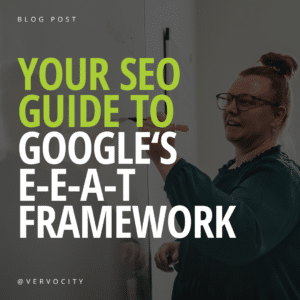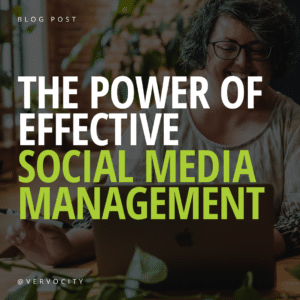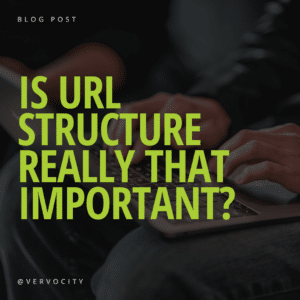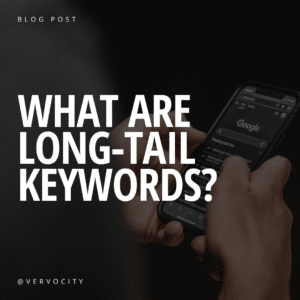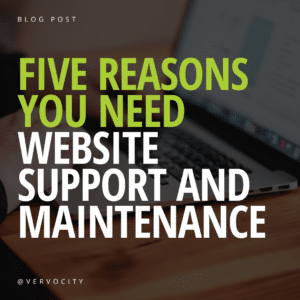Did you know Google has a standard for quality content?
As search engines adapt to user behavior and preferences, Google’s search algorithms update and refine how they evaluate online content’s quality and relevancy.
Expertise, Authoritativeness, and Trustworthiness (E-A-T) have been cornerstones of Google’s guidelines for years. E-A-T became a key factor in assessing content quality, and search engine optimization (SEO) evolved to reflect the content priorities.
In late 2022, Google added an extra ‘E’ into the mix for “Experience.” This move shifts the algorithm to value not just the surface-level credibility of your content but also the depth of personal experience and practical insight it provides.
Let’s dish out the details of what E-E-A-T means and how to serve up quality content for your audience.
Breaking Down E-E-A-T
E-E-A-T is an acronym that Google uses within its Search Quality Rater Guidelines, which helps human raters assess the quality of search results. Rather than directly affecting SEO rank, the E-E-A-T framework is a combination of factors that contribute to determining whether your content should appear for a given search query. It was implemented to determine IF your content should appear, not where it appears (however, publishing quality content IS an SEO factor).
Here’s what each element means for your content strategy:
1. Experience
Experience means more than the years under your belt. The new ‘E’ emphasizes the value of personal experience. Content that shares personal anecdotes, case studies, or examples may now have an edge. Include your personal experience and practical insights into topics to help provide a unique and authentic perspective. Think about this as proving that you’ve walked the walk and can talk the talk.
For example, content produced by individuals with actual, lived experiences can be just as important as the one created by recognized experts. A travel blog written by someone who has actually visited the destinations can be more valuable to readers than generic content lacking personal insight.
2. Expertise
Show, don’t just tell, that you know your stuff.
Expertise is about having a deep level of knowledge or understanding of a subject. Google distinguishes between formal expertise (for medical, financial, or legal advice, for example) and topics where there may be less formal education or training. The key here is that the person creating the content should display a high level of knowledge about their subject to ensure the information they provide is valuable and accurate.
3. Authoritativeness
Your reputation is your authority.
To establish authority, content creators should aim to be recognized as go-to sources of information in their respective fields. Produce quality content to gain recognition from others through citations, backlinks, and testimonials. A website’s reputation, as seen through reviews and external references, establishes authoritativeness for your audience.
Your digital footprint outside your website can boost your authority in Google’s eyes.
4. Trustworthiness
The internet is FULL of inaccuracies. Google wants to ensure your visitors receive factual, reliable information.
Trustworthiness revolves around the accuracy and honesty of the content. Websites need to provide accurate information, clearly disclose potential conflicts of interest, and try to correct any misinformation. Secure sites with transparent business practices, up-front affiliations, and clear, honest content will fare better under this guideline.
Implementing E-E-A-T in Your Content Strategy
So, what does E-E-A-T mean for content creators and marketers?
Showcase Real Experience
Share personal stories and experiences. Serving content based on firsthand research and unique insights can set your site apart. Whether it’s original studies, experiments, or analysis, authenticity can differentiate content in a saturated market.
Highlight Expertise
Highlight your credentials, certifications, education, and other qualifications that establish you as an expert in your field. Include information like bio sections, author pages, or references to your professional background in your content.
Build Authority
Authority is built through the quality of your content and your presence in the field. Guest posts, speaking engagements, and reputable publications in your area of expertise contribute to your authority. Encourage user feedback and include reviews or testimonials on your website. Having a solid brand presence and being recognized by others in the field can enhance authority.
Ensure Trustworthiness
Fact-check content, provide sources, and update information regularly. Ensure your site has transparent contact information, clear privacy policies, and robust security features. Make sure your website is free from any potential malware or security threats.
Engage with Your Community
Interacting with your audience through comments, social media, or forums can demonstrate your commitment to your niche and willingness to exchange thoughts and advice.
Craft transparent and clear content
Be transparent about your sources, affiliation, and intentions. Clearly state potential conflicts of interest and disclose any sponsored content or advertising. Transparency helps build trust.
Offer Clear, Actionable Information
Ensure your content informs and provides clear guidance or actionable takeaways that demonstrate your understanding of the audience’s needs and your ability to provide practical help.
It’s important to note that E-E-A-T is increasingly important for websites in the YMYL (Your Money Your Life) category, which includes websites that provide information on health, finance, legal matters, or other topics that impact users’ well-being. Google holds these sites to higher standards due to the potential impact of incorrect information on user health, safety, happiness, or financial stability.
Conclusion
As Google’s algorithm becomes more sophisticated, so must our approach to SEO.
The introduction of E-E-A-T is an opportunity to improve the quality and impact of online content. By focusing on not just the ‘what’ but the ‘why’ and ‘how’ of your content, you can cater to both your audience and Google’s tastes.
Are you ready to spice up your website’s SEO and content strategy? Call us at (217) 222-1451! Our copywriting and SEO specialists will whip up a custom strategy that aligns with E-E-A-T guidelines and helps your website connect with your audience.

